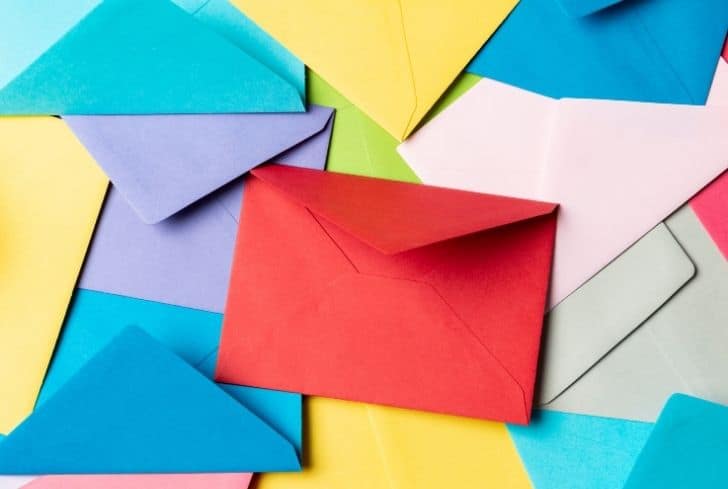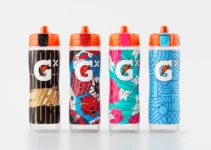The envelope is one stationery that is so commonplace; we often disregard its existence. Its continued existence itself is some miracle – given the advent of digital media and instant messaging.
Yet whether you need to send personal or marketing mail, or file-office documents, and or send out greeting or invitation cards, envelopes are very much in vogue.
Billions of envelopes are still produced and consumed yearly around the world. Envelopes are so iconic that Google used them as the icon for their emailing platform, Gmail!
Today, envelopes are known for their rectangular shape and mainly paper material. Perhaps one reason why envelopes have been prized and treasured through history is their power to keep secrets and maintain privacy. Other than that, it’s quite difficult to think up why envelopes have consistently been in use.
However, though envelopes cannot be separated from modern civilization, they still pose a lot of challenges to the current movement by International organizations and eco-activists to safeguard the environment.
Among the environmental protection measures are eco-friendly production and consumption habits and ensuring the sustainable use of natural resources.
The use of envelopes is a challenging issue because they are mostly made of paper (and sometimes plastic), and paper has been found to have a negative, devastating impact on the environment.
Therefore, this state of things poses the question of what we all can do to save the environment from the effects of papers. And for the purpose of today’s discussion, we ask, how do we save the environment from the effect of the envelope?
Can we recycle envelopes? Can we compost them? And, what are the other ways we can put envelopes to use?
These questions and many more are what this post considers. We give you a cursory look into the position of things regarding the environmental effect of envelopes.
All you have to do is sit back and enjoy as we take you on a free and eventful ride.
Can You Recycle Envelopes?
Recycling envelopes that would rather go to waste is one of the easiest things we can ever think of as end-users.
Notably, paper waste poses a problem. For instance, in the United States, paper accounts for a whopping 40% of all solid waste. That is a huge chunk of waste, and envelopes are sure to be a significant part of it, given the number of envelopes sent through mails daily.
Aside from this, paper production is a huge factor in the increase of deforestation and biodiversity loss. The process through which paper is manufactured also releases green gases like methane and carbon dioxide. This worsens global warming and only negatively affects the current climate crises.
So, your worry about recycling papers is rightly conceived and particularly relevant in the light of the above realities. And, for all that matters, we need to take urgent steps to tackle this.
Now, can you recycle envelopes?
To give a straight forward answer: Yes, it is fully possible to recycle envelopes.
The reason is that envelopes are mainly paper-based materials, and the paper itself is a recyclable product as it is sourced from organic materials (i.e. wood pulp).
Even though the materials from which paper is produced is usually subjected to chemical treatment during production, the end product is still good enough for recycling. Some paper envelopes can be recycled up to six times before their fiber becomes too short for further recycling. So, you don’t have to worry too much about the envelopes. All you have to do is toss them in the recycling bin.
However, some envelopes are made from plastics or a mixture of plastics and paper. These include poly mailers, binder envelopes, document folders, window envelopes, and envelopes with bubble padding.
Plastic envelopes are notable for their durability and waterproof nature. Some security plastic mails go a step further to ensure the security of its contents by having a one time use feature. This means that, relatively, they are also in common use among Americans.
Most plastic envelopes are made from polyethylene, which is recyclable plastic. Though not all plastic envelopes have this kind of material. Hence, you have to be conscious of the kind of envelope you are dealing with.
To know this, all you need to do is to look at the body of the envelope. Check out which recycling grade it is (it is usually a number etched in a triangular shape), and follow the other instructions.
There are also envelopes that contain a mixture of paper and plastic materials. For this kind of envelopes, it might be necessary to separate both before dumping them in a recycling bin. This is because either paper in the plastic bin or plastic in the paper bin makes the recycling process more difficult.
If you do not separate them before tossing them in the recycling bin, this kind of envelope may end up not being recycled.
Can You Recycle Envelopes With Glue?
In general, you can recycle envelopes with Glue. The reason is that true glues are manufactured from organic, natural materials like animal collagen compounds, which can decompose.
However, not all recycling plants would take it up because it may pollute their paper recycling process – particularly if it involves making pulp converted to paper once again.
On the good side, many modern recycling plants don’t mind small amounts of “polluting agents,”; so envelopes with Glue is not a problem.
Therefore, you might need to contact your local recycling agency and find out if they accept envelopes with Glue on them.
Even if the envelopes are not accepted for recycling, they are still perfect for composting. This is regardless of the glue on them. Let’s take a look at this in detail.
Are Envelopes Compostable?
Since most envelopes are made from paper, they are largely compostable.
Paper is good for composting because it absorbs moisture in waterlogged soil and keeps moisture locked in when the weather is dry and hot. It is also a great source of carbon, necessary to preserve natural soil balance between nitrogen and carbon. In addition to providing nutrients to the soil, it decomposes within a maximum of six months.
To compost, it would be best if the papers are shredded. It should then be mixed with other waste to be used for the compost, and then it is to be aerated in a bin.
This aeration prevents the growth of unwanted anaerobic conditions. Then, both hot and cold methods of composting could be used.
In all, as paper takes less than six months to decompose, it is considered compostable as well. As such, if you have a flair for gardening, you could consider adding some of your “waste” envelopes to the compost heap. The papers used for envelopes are quite safe and pose no risk of adding toxic material to the soil.
10 Amazing Ways To Reuse Envelopes
Even though it’s a great idea to recycle your “waste” envelopes, it is an even better idea to reuse them. Recycling processes make use of energy and other materials, so it is a better idea to reuse or repurpose your envelopes till it is too bad to be used – before throwing it into the recycling bin.
Here are some creative and fun ideas on what you can do with those envelopes you have piled up!
1. Go Mini!
Well, why don’t you play with the sizes a bit? It might be a good idea to cut the envelope into two and turn these into two smaller envelopes! This would be a perfect idea for A4 size envelopes.
2. DIY Paper Craft
You might also want to get your creative energy moving by converting your envelope into do-it-yourself paper crafts, such as flowers, paper houses, paper deco, et cetera! All you need are scissors, glue and coloring items. Well, don’t forget to come with your creativity as well!
3. Make Notepads
It is also possible to make note pads with your envelopes. All you need to do is cut them into uniform sizes, apply Glue to the top side of the paper cuttings, and glue them. That’s all; begin to write down things you would like to shop for during your next trip.
4. Create Journals
If bigger sized envelopes crowd your stock of old/waste envelopes, you might consider creating a journal with them. It’s the same trick with making notepads, only that journals are larger!
5. Organizing Your Financials
You may use cuttings from your envelopes for budgeting and making lists. How about practicing the aged but viable envelope budgeting method? All you need to do is to prioritize what you would be doing with your cash at hand and enclose the exact money for those specific needs into separate envelopes.
This visual budgeting method ensures that you don’t spend more than you had wanted to. The old envelopes are also useful in organizing your financials – such as tax receipts and bill payments.
6. Organizing Seeds
Envelopes aren’t only useful in organizing financials. They are also useful to garden lovers. It enables you to organize your seeds. Just label your envelopes according to the seeds you want to grow with a pen or marker. You might add a little creativity with a touch of watercolor! Great idea, don’t you think?
7. Enhance Your Scrapbook
You could also take your scrapbook to the next level by creating pockets for the scrapbook with your envelopes. All you need is a pair of scissors to shape the envelope to the size you want, cut off its flap, and then glue it to the book.
And that’s it; you have new pockets for your scrapbook! You might also want to do another version like a ‘memory book’ for any of the ones dear to your heart. It could be just the best anniversary or birthday gift!
8. Donation to Animal Shelters
Perhaps, your envelopes might contain sensitive information, and you would just have shredded the envelope. This need not be the end of the road to reuse: some lost puppies or kittens might well need what you have.
Just contact a local shelter around you and see if they need paper shredding for the animals’ floor. Envelope shredding like yours could very well provide extra warmth for them.
9. Wrap a Gift
You do not need to buy wrapping paper when you have your old envelopes. Just cut them open, color them, and you’re good to go! Not only does this save you extra cash, but it also ensures that paper is used sustainability. Why buy more when you need less?
10. Use it as a Book Cover/ Bookmark
If you are a book lover, here’s one for you! Get the best out of your reading experience by having portable paper bookmarks made from your junk envelopes. It could be vertical strips of them or just several corner squares.
You might also want to give your books a new look. Get creative with the envelope: draw patterns, images, etc.
Conclusion
Recycling is necessary to reduce waste and reduce the amount of energy and resources used in creating new products from scratch. There are already enough environmental statistics to scare us from placing total reliance on papers. We shouldn’t compound the situation by not treating our envelopes well enough. As you have seen, you can recycle, compost and reuse your envelopes.
References:






